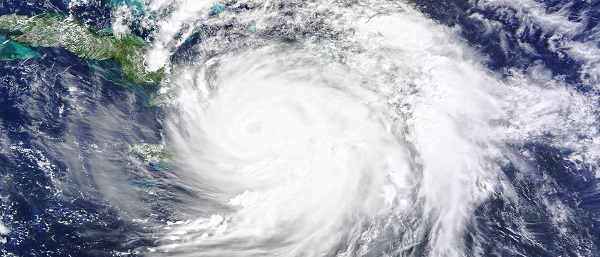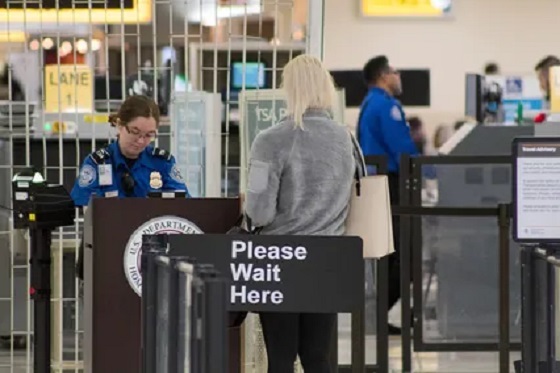Censorship Industrial Complex
Politicians Urge Social Media Platforms to “Quickly and Decisively” Censor Hurricane “Misinformation”

News release from Reclaim The Net
Despite recent pushback for politicians encouraging social media platforms to increase censorship online, in the wake of Hurricanes Helene and Milton, a cadre of Democratic House representatives from the affected regions have appealed to major social media platforms to intensify their efforts to censor alleged “misinformation” related to the storms.
We obtained a copy of the letter for you here.
“We write to your platforms with an urgent request on behalf of states affected by the devastation of Hurricane Helene and those currently being impacted by Hurricane Milton,” the letter states. “In the aftermath of Helene, we have witnessed a troubling surge in misinformation, disinformation, conspiracy theories, and scams that are hindering recovery efforts and exploiting vulnerable individuals and families.”
The representatives say are concerned about the proliferation of false claims and blame these reportedly false claims for the hindering of recovery efforts. The congresswomen also say that social media posts are undermining public confidence in institutions.
The call for a crackdown on misinformation was articulated in a letter addressed to seven major social media entities, including Meta, X, TikTok, Discord, YouTube, Snap, and Instagram. Authored by Representatives Deborah Ross (D-N.C.), Kathy Castor (D-Fla.), Nikema Williams (D-Ga.), and Wiley Nickel (D-N.C.), the letter alleges that misinformation is having a dire impact.
The letter doesn’t directly demand censorship of alleged misinformation, but it does put pressure on platforms to police speech, saying that they have the “power and the responsibility” to “improve the digital spaces.”
The congresswomen say that they “strongly encourage” platforms to act “quickly and decisively.”
In a press conference today, President Biden dismissed some of the criticism of the response to the hurricane as “lies” and said, “Those who have been spreading these lies to try to undermine the opposition, they are going to pay a price for it.”
The political pressure on social media platforms to step in regarding a major event echoes what happened during the Covid pandemic.
During the pandemic, the call for online censorship by politicians and health authorities under the guise of combating misinformation became a contentious issue. This initiative, aimed at preventing the spread of allegedly harmful or misleading information about the virus, its transmission, and treatments, led to a wide array of interventions by social media platforms and tech companies.
As part of these efforts, platforms like Facebook, Twitter, and YouTube introduced policies to flag, remove, or demote content that contradicted the evolving understanding of health authorities such as the World Health Organization (WHO) and the Centers for Disease Control and Prevention (CDC). The intent was supposedly to protect public health; however, the execution of these policies often resulted in the suppression of legitimate discourse and the removal of content that later proved to be accurate.
Business
Trump slaps Brazil with tariffs over social media censorship

From LifeSiteNews
By Dan Frieth
In his letter dated July 9, 2025, addressed to President Luiz Inácio Lula da Silva, Trump ties new U.S. trade measures directly to Brazilian censorship.
U.S. President Donald Trump has launched a fierce rebuke of Brazil’s moves to silence American-run social media platforms, particularly Rumble and X.
In his letter dated July 9, 2025, addressed to President Luiz Inácio Lula da Silva, Trump ties new U.S. trade measures directly to Brazilian censorship.
He calls attention to “SECRET and UNLAWFUL Censorship Orders to U.S. Social Media platforms,” pointing out that Brazil’s Supreme Court has been “threatening them with Millions of Dollars in Fines and Eviction from the Brazilian Social Media market.”


Trump warns that these actions are “due in part to Brazil’s insidious attacks on Free Elections, and the fundamental Free Speech Rights of Americans,” and states: “starting on August 1, 2025, we will charge Brazil a Tariff of 50% on any and all Brazilian products sent into the United States, separate from all Sectoral Tariffs.” He also adds that “Goods transshipped to evade this 50% Tariff will be subject to that higher Tariff.”
Brazil’s crackdown has targeted Rumble after it refused to comply with orders to block the account of Allan dos Santos, a Brazilian streamer living in the United States.
On February 21, 2025, Justice Alexandre de Moraes ordered Rumble’s suspension for non‑compliance, saying it failed “to comply with court orders.”
Earlier, from August to October 2024, Moraes had similarly ordered a nationwide block on X.
The court directed ISPs to suspend access and imposed fines after the platform refused to designate a legal representative and remove certain accounts.
Elon Musk responded: “Free speech is the bedrock of democracy and an unelected pseudo‑judge in Brazil is destroying it for political purposes.”
By linking censorship actions, particularly those targeting Rumble and X, to U.S. trade policy, Trump’s letter asserts that Brazil’s judiciary has moved into the arena of foreign policy and economic consequences.
The tariffs, he makes clear, are meant, at least in part, as a response to Brazil’s suppression of American free speech.
Trump’s decision to impose tariffs on Brazil for censoring American platforms may also serve as a clear signal to the European Union, which is advancing similar regulatory efforts under the guise of “disinformation” and “online safety.”
With the EU’s Digital Services Act and proposed “hate speech” legislation expanding government authority over content moderation, American companies face mounting pressure to comply with vague and sweeping takedown demands.
By framing censorship as a violation of U.S. free speech rights and linking it to trade consequences, Trump is effectively warning that any foreign attempt to suppress American voices or platforms could trigger similar economic retaliation.
Reprinted with permission from Reclaim The Net.
Censorship Industrial Complex
Canadian pro-freedom group sounds alarm over Liberal plans to revive internet censorship bill

From LifeSiteNews
The Democracy Fund warned that the Liberal government may bring back a form of Bill C-63, which is aimed at regulating online speech.
One of Canada’s top pro-democracy groups has sounded the alarm by warning that the Canadian federal government is planning to revive a controversial Trudeau-era internet censorship bill that lapsed.
The Democracy Fund (TDF), in a recent press release, warned about plans by the Liberal government under Prime Minister Mark Carney to bring back a form of Bill C-63. The bill, which lapsed when the election was called earlier this year, aimed to regulate online speech, which could mean “mass censorship” of the internet.
“TDF is concerned that the government will try once more to give itself the power to criminalize and punish online speech and debate,” the group said.
“TDF will oppose that.”
According to the TDF, it is “concerned that the government intends to re-introduce the previously abandoned Online Harms Bill in the same or modified form.”
Bill C-63, or the Online Harms Act, was put forth under the guise of protecting children from exploitation online. The bill died earlier this year after former Prime Minister Justin Trudeau called the 2025 federal election.
While protecting children is indeed a duty of the state, the bill included several measures that targeted vaguely defined “hate speech” infractions involving race, gender, and religion, among other categories. The proposal was thus blasted by many legal experts.
The Online Harms Act would have censored legal internet content that the government thought “likely to foment detestation or vilification of an individual or group.” It would be up to the Canadian Human Rights Commission to investigate complaints.
The TDF said that Bill C-63 would have made it a criminal offense to publish ill-defined “harmful content.”
“It required social media companies to remove potentially harmful content or face punitive fines. Many defenders of civil liberty, including TDF, worried that the application of this badly defined concept would lead to mass surveillance and censorship,” the group said.
The TDF warned that under Carney, the government is “once again considering new or similar legislation to regulate online speech, with the Minister of Justice claiming he would take another look at the matter.”
Mark Joseph, TDF litigation director, pointed out that Canada already has laws that “the government can, and does, use to address most of the bad conduct that the Bill ostensibly targeted.”
“To the extent that there are gaps in the Criminal Code, amendments should be carefully drafted to fix this,” he said.
“However, the previous Bill C-63 sought to implement a regime of mass censorship.”
As reported by LifeSiteNews last month, a recent Trudeau-appointed Canadian senator said that he and other “interested senators” want Carney to revive a controversial Trudeau-era internet censorship bill that lapsed.
Another recent Carney government Bill C-2, which looks to ban cash donations over $10,000, was blasted by a constitutional freedom group as a “step towards tyranny.”
Carney, as reported by LifeSiteNews, vowed to continue in Trudeau’s footsteps, promising even more legislation to crack down on lawful internet content.
He has also said his government plans to launch a “new economy” in Canada that will involve “deepening” ties to the world.
Under Carney, the Liberals are expected to continue much of what they did under Justin Trudeau, including the party’s zealous push in favor of abortion, euthanasia, radical gender ideology, internet regulation and so-called “climate change” policies. Indeed, Carney, like Trudeau, seems to have extensive ties to both China and the globalist World Economic Forum, connections that were brought up routinely by conservatives in the lead-up to the election.
-

 Opinion1 day ago
Opinion1 day agoPreston Manning: Three Wise Men from the East, Again
-

 Uncategorized2 days ago
Uncategorized2 days agoCNN’s Shock Climate Polling Data Reinforces Trump’s Energy Agenda
-

 Addictions1 day ago
Addictions1 day agoWhy B.C.’s new witnessed dosing guidelines are built to fail
-

 Business1 day ago
Business1 day agoMark Carney’s Fiscal Fantasy Will Bankrupt Canada
-

 Energy21 hours ago
Energy21 hours agoActivists using the courts in attempt to hijack energy policy
-

 Business1 day ago
Business1 day agoCarney Liberals quietly award Pfizer, Moderna nearly $400 million for new COVID shot contracts
-

 COVID-191 day ago
COVID-191 day agoTrump DOJ dismisses charges against doctor who issued fake COVID passports
-

 Alberta1 day ago
Alberta1 day agoTemporary Alberta grid limit unlikely to dampen data centre investment, analyst says






